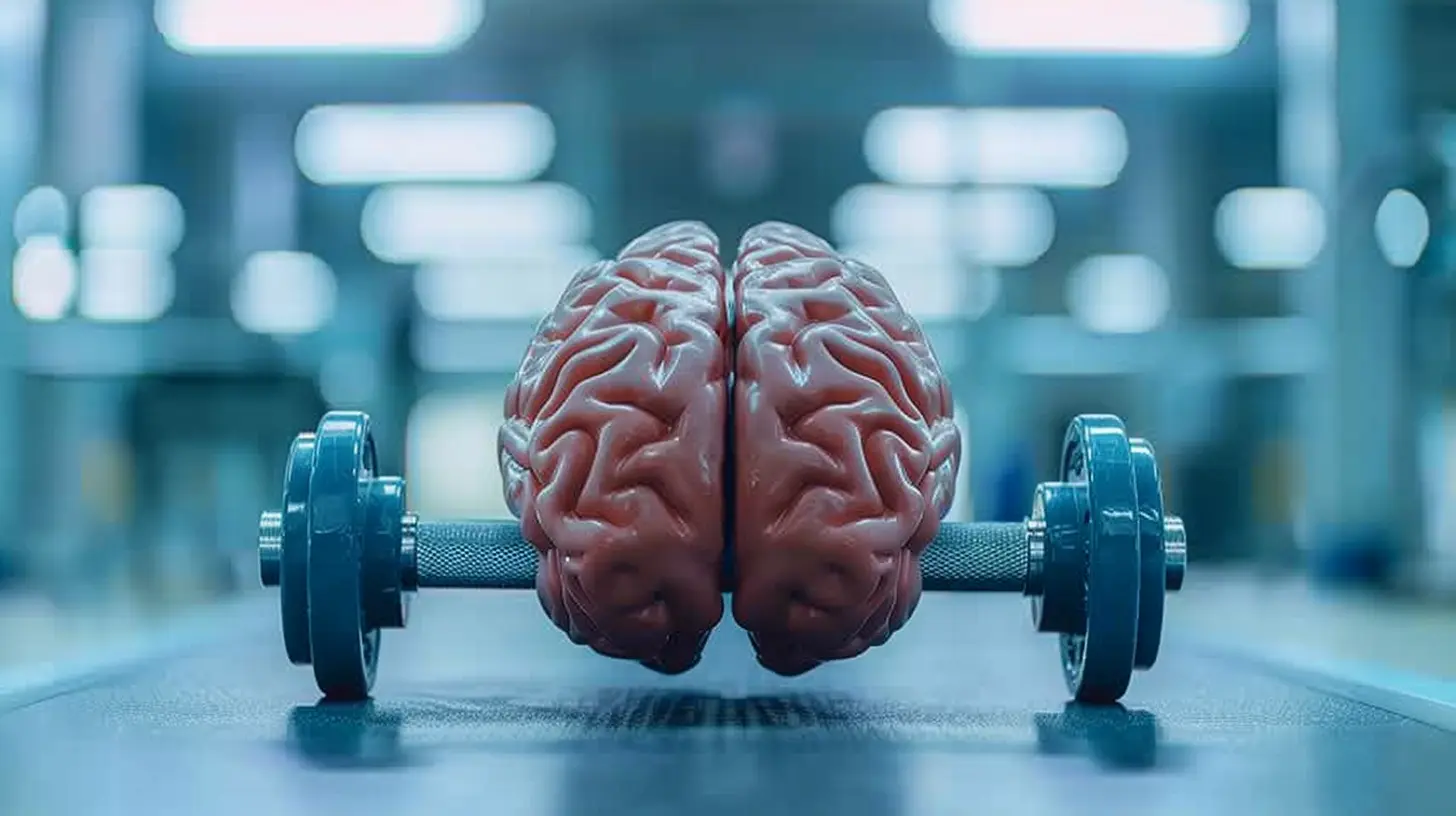The Role of Physical Exercise in Enhancing Cognitive Performance
17 November 2025
Ever feel like your brain is in a fog? Struggling to focus, remember details, or simply stay alert throughout the day? We’ve all been there. But what if I told you that the solution might be as simple as lacing up your sneakers and getting moving?
Physical exercise isn’t just about getting fit or shedding a few pounds—it plays a crucial role in sharpening your mind and boosting cognitive performance. Whether you're a student, a professional, or just someone looking to keep their brain in top shape, integrating exercise into your routine can work wonders. Let’s break down why.

How Exercise Affects The Brain
When you engage in physical activity, your body isn't the only thing that benefits—your brain does too. Exercise stimulates the release of various chemicals that support brain function, including:- Endorphins, which make you feel happier and less stressed.
- Dopamine and serotonin, neurotransmitters that improve mood and motivation.
- Brain-Derived Neurotrophic Factor (BDNF), a protein that helps grow and maintain brain cells.
In simple terms, exercise acts as a natural brain booster, helping you think clearer, learn faster, and remember more.

Increased Blood Flow and Oxygenation
Ever noticed how energized you feel after a brisk walk or a workout session? That’s because physical activity increases blood flow to the brain, delivering oxygen and essential nutrients. This improved circulation helps keep your brain cells healthy and functioning at their best.Think of blood flow as a delivery truck bringing supplies to a construction site. Without it, the site (your brain) would struggle to build and repair structures (thoughts, memories, and problem-solving skills). Exercise keeps that delivery system running smoothly, ensuring your brain gets what it needs to perform optimally.

Exercise and Memory Enhancement
Do you ever forget where you put your keys or struggle to recall important details? Regular physical activity can help with that. Studies have shown that exercise strengthens the hippocampus, the part of the brain responsible for memory and learning.Engaging in moderate-intensity exercises like jogging, swimming, or cycling has been linked to improved memory retention. This means students preparing for exams or professionals dealing with information overload can benefit significantly from staying active.

Boosting Focus and Attention Span
If you have trouble concentrating for long periods, exercise might be the game-changer you need. Physical activity helps regulate dopamine, norepinephrine, and serotonin levels—chemicals linked to attention and focus.Even a short 20-minute walk before a study session or work task can enhance mental clarity and make it easier to stay engaged. It’s like giving your brain a quick tune-up before diving into something important.
Stress Reduction and Mental Clarity
Stress can cloud your judgment, make decision-making harder, and lead to burnout. But here’s the good news: exercise is a powerful stress-buster.When you sweat it out, your body releases endorphins (often called “happy hormones”), which naturally lower stress levels. Physical activity also reduces cortisol, the hormone responsible for stress and anxiety. So, the next time you’re feeling overwhelmed, step outside for a jog or hit the gym—your brain will thank you.
Enhancing Creativity and Problem-Solving
Have you ever noticed that some of your best ideas come when you’re walking or running? There’s a reason for that. Exercise encourages divergent thinking—the ability to generate multiple solutions to a problem.By getting your body moving, you allow your mind to wander and make creative connections more easily. Many great thinkers, including Steve Jobs, were known for their walking meetings because they believed movement sparked innovative ideas.
Physical Activity and Brain Aging
Aging is inevitable, but cognitive decline doesn’t have to be. Research suggests that regular exercise helps protect against neurodegenerative diseases like Alzheimer's and dementia.As we age, our brain naturally shrinks, leading to memory loss and slower processing speeds. However, staying physically active can slow down this process by increasing gray matter and improving neural connections.
It’s never too late to start—whether you're 20 or 70, your brain will reap the benefits of an active lifestyle.
Best Types of Exercise for Cognitive Health
Not all exercises are created equal when it comes to brain health. Here are some of the best workouts to keep your mind sharp:1. Aerobic Exercises
Running, swimming, biking, and brisk walking increase heart rate and blood circulation, directly benefiting the brain.2. Strength Training
Lifting weights or doing bodyweight exercises like squats and push-ups can improve cognitive function by promoting brain plasticity.3. Yoga and Meditation
These practices enhance mindfulness, reduce stress, and improve focus and cognitive flexibility.4. Dancing
Learning new dance moves requires coordination and memory, making it a fantastic brain workout.5. Team Sports
Activities like basketball, soccer, or tennis engage social and problem-solving skills while also providing physical exercise.How to Incorporate Exercise into Your Daily Routine
You don’t need to spend hours in the gym to experience cognitive benefits. Here are some easy ways to stay active:- Take short walking breaks during work or study sessions.
- Opt for stairs instead of elevators.
- Do a quick 10-minute workout in the morning.
- Engage in recreational activities like hiking, dancing, or playing sports.
- Try standing or walking meetings at work.
The key is consistency—make physical activity a regular part of your routine, and your brain will reward you with improved focus, memory, and overall mental clarity.
Final Thoughts
Your brain is one of your most valuable assets, and keeping it in top shape should be a priority. Physical exercise isn’t just about looking good—it’s about feeling and thinking better, too. From improving memory and focus to reducing stress and enhancing creativity, movement is your secret weapon for optimal cognitive performance.So next time you’re feeling mentally drained, put down the coffee and go for a quick jog or do a short workout. Your brain will fire up, and you’ll be ready to tackle whatever challenges come your way.
all images in this post were generated using AI tools
Category:
Test PreparationAuthor:

Olivia Chapman
Discussion
rate this article
1 comments
Matteo McNaughton
This article beautifully highlights the profound connection between physical exercise and cognitive performance. It's a gentle reminder that prioritizing our physical health not only boosts our bodies but also sharpens our minds. Thank you for shedding light on such an important aspect of holistic well-being!
November 21, 2025 at 6:04 AM

Olivia Chapman
Thank you for your thoughtful comment! I'm glad the article resonated with you and emphasized the vital link between physical health and cognitive performance.

